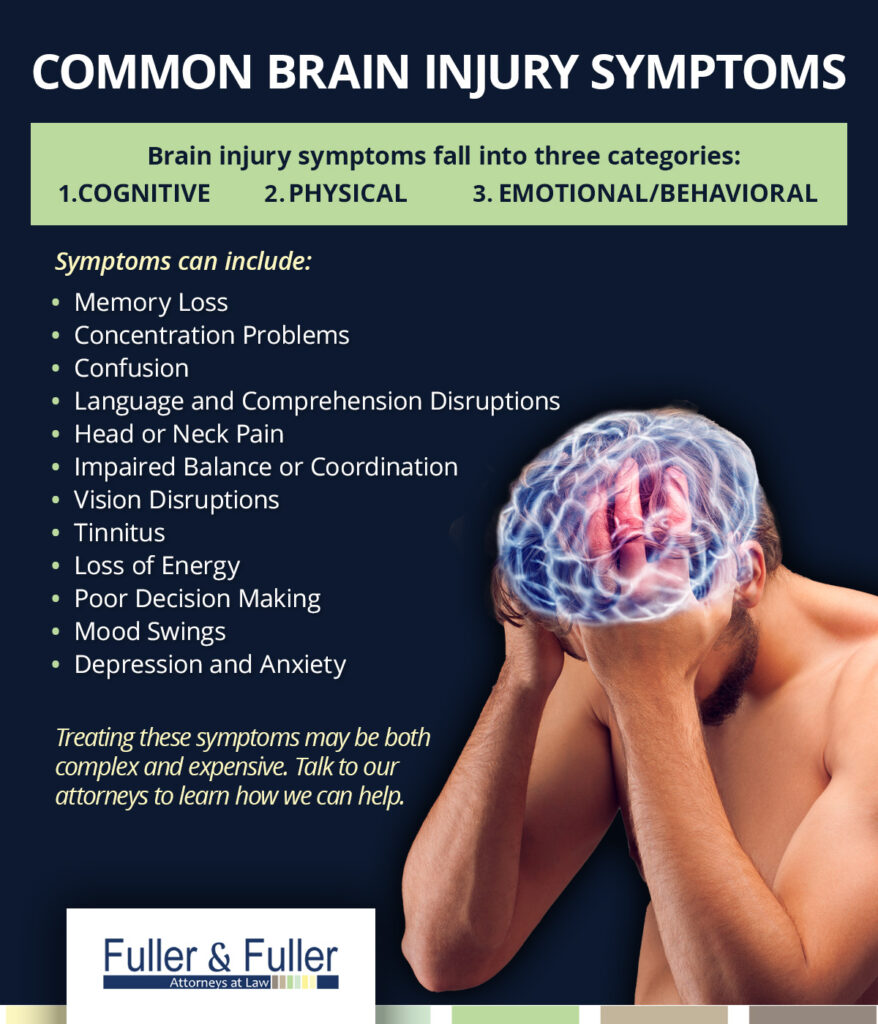Brain Injury Lawyers Serving Olympia & Tacoma
Auto and motorcycle accidents are the main causes of brain injury in Washington state.
If you’ve been in an accident and:
- Your head was hit
- Your neck and spine jarred
- You lost consciousness, even for a few moments
- You experienced some kind of changed consciousness
- You experienced post-traumatic amnesia (confusion or forgetting)
then you may have a brain injury.

Traumatic Brain Injury (TBI)
The brain can be injured whether or not the skull is penetrated. Presumably, if your head was bleeding, you received medical attention. But even if no wound was visible on your head, your brain may still have been injured.
Closed head injury
This happens when the head is suddenly stopped while in motion, e.g. in a fall or traffic accident. The brain is brought up short against the inside of the skull. A whiplash injury can have the same effect, causing the brain to hit against the skull.
The damage to the brain can take three main forms:
Bruising
A bruise on the body is a common minor injury, but a bruise on the brain is far more serious. A bruise is torn tiny blood vessels, which create a pool of blood. When a bruise happens in the enclosed space of the skull, the pooling blood takes up some of the limited space and presses against the brain. In extreme cases, this can make the brain tissue stop functioning.
Swelling
The body senses that the brain is hurt and it sends extra blood to try to heal it. Other fluids collect too, which can further increase the pressure on the brain.
Tearing
During an accident, the brain tissue may sustain tears so small that they can’t be seen with Computer Tomography (CT scan) or a Magnetic Resonance Imaging (MRI), two of the major assessment tools used for brain injury. These microscopic tears can sever the brain’s wiring, disrupting normal brain function.
Examples of Brain Injury Symptoms
• Loss of memory • Poor concentration • Poor decision making • Head or neck pain • Confusion • Lack of energy •
• Impaired balance or coordination • Blurred or double vision • Ringing in the ears • Reduced sex drive •
• Difficulty with reading or speaking • Mood swings • Changes in sleeping habits • Loss of energy
These symptoms fall into 3 categories:
- Cognitive
- Physical
- Emotional/Behavioral
Claims can be complex
There’s still much that’s unknown about the brain and how it functions.
- The injuries can be hard to document
- Diagnostic tests don’t always provide hard proof
- Medical experts can disagree on causation, degree of impairment, or recovery
Investigation and negotiation may take some time, and require special attention and an experienced brain injury attorney. If your case goes to trial, you need a skilled lawyer to document and present all the complex information.
Contact Our Brain Injury Lawyers Today
At Fuller & Fuller, we understand how distressing things can be if you or a loved one has sustained a brain injury. Our brain injury attorneys will investigate your situation, gather the facts, and fight for your fair compensation. If you feel you or a loved one has incurred a brain injury, contact Fuller & Fuller, Attorneys, today for a free case evaluation.






